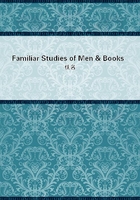
第68章
John the Fearless had been murdered in his turn on the bridge of Montereau so far back as 1419. His son, Philip the Good - partly to extinguish the feud, partly that he might do a popular action, and partly, in view of his ambitious schemes, to detach another great vassal from the throne of France - had taken up the cause of Charles of Orleans, and negotiated diligently for his release. In 1433 a Burgundian embassy was admitted to an interview with the captive duke, in the presence of Suffolk. Charles shook hands most affectionately with the ambassadors. They asked after his health. "I am well enough in body," he replied, "but far from well in mind.
I am dying of grief at having to pass the best days of my life in prison, with none to sympathise." The talk falling on the chances of peace, Charles referred to Suffolk if he were not sincere and constant in his endeavours to bring it about. "If peace depended on me," he said, "I should procure it gladly, were it to cost me my life seven days after." We may take this as showing what a large price he set, not so much on peace, as on seven days of freedom. Seven days! - he would make them seven years in the employment. Finally, he assured the ambassadors of his good will to Philip of Burgundy; squeezed one of them by the hand and nipped him twice in the arm to signify things unspeakable before Suffolk; and two days after sent them Suffolk's barber, one Jean Carnet, a native of Lille, to testify more freely of his sentiments. "As I speak French," said this emissary, "the Duke of Orleans is more familiar with me than with any other of the household; and I can bear witness he never said anything against Duke Philip." (1) It will be remembered that this person, with whom he was so anxious to stand well, was no other than his hereditary enemy, the son of his father's murderer. But the honest fellow bore no malice, indeed not he. He began exchanging ballades with Philip, whom he apostrophises as his companion, his cousin, and his brother. He assures him that, soul and body, he is altogether Burgundian; and protests that he has given his heart in pledge to him. Regarded as the history of a vendetta, it must be owned that Charles's life has points of some originality. And yet there is an engaging frankness about these ballades which disarms criticism. (2) You see Charles throwing himself headforemost into the trap; you hear Burgundy, in his answers begin to inspire him with his own prejudices, and draw melancholy pictures of the misgovernment of France. But Charles's own spirits are so high and so amiable, and he is so thoroughly convinced his cousin is a fine fellow, that one's scruples are carried away in the torrent of his happiness and gratitude. And his would be a sordid spirit who would not clap hands at the consummation (Nov. 1440); when Charles, after having sworn on the Sacrament that he would never again bear arms against England, and pledged himself body and soul to the unpatriotic faction in his own country, set out from London with a light heart and a damaged integrity.
(1) Dom Plancher, iv. 178-9.
(2) Works, i. 157-63.
In the magnificent copy of Charles's poems, given by our Henry VII. to Elizabeth of York on the occasion of their marriage, a large illumination figures at the head of one of the pages, which, in chronological perspective, is almost a history of his imprisonment. It gives a view of London with all its spires, the river passing through the old bridge and busy with boats. One side of the White Tower has been taken out, and we can see, as under a sort of shrine, the paved room where the duke sits writing. He occupies a high-backed bench in front of a great chimney; red and black ink are before him; and the upper end of the apartment is guarded by many halberdiers, with the red cross of England on their breast. On the next side of the tower he appears again, leaning out of window and gazing on the river; doubtless there blows just then "a pleasant wind from out the land of France," and some ship comes up the river: "the ship of good news." At the door we find him yet again; this time embracing a messenger, while a groom stands by holding two saddled horses. And yet further to the left, a cavalcade defiles out of the tower; the duke is on his way at last towards "the sunshine of France."
III.